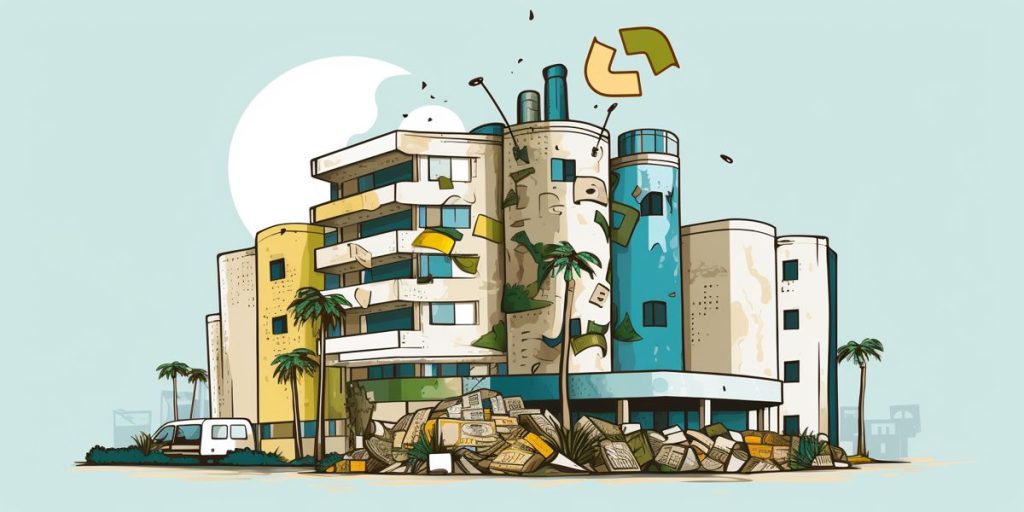Cyprus is revitalizing its tourism industry by embracing sustainability through circular economy practices in hotels, focusing on recycling, energy conservation, and waste reduction. This strategic move not only reduces environmental impact and operational expenses but also aligns with EU sustainability commitments, enhancing the competitiveness and resilience of the tourism sector.
How is Cyprus revitalizing its tourism industry through sustainability?
Cyprus is revitalizing its tourism by integrating circular economy practices in hotels, focusing on recycling, energy conservation, and waste reduction. This strategic move reduces environmental impact, lowers operational expenses, and aligns with EU sustainability commitments, thereby enhancing the competitiveness and resilience of the tourism sector.
Circular Economy: A Game Changer for Cypriot Hotels
The Deputy Minister of Tourism, Kostas Koumis, has recently underscored the pivotal role of circular economy practices in enhancing the Cypriot tourism industry’s competitiveness and resilience. During a networking seminar in Limassol, Koumis welcomed over 50 hotel businesses participating in the National Recovery and Resilience Plan, which aims to promote sustainable development within the sector.
These hotels are not only stepping towards a greener future but are also setting a precedent for the industry at large. The initiative, ‘Promotion of the Circular Economy in Hotel Units’, is not just a step towards sustainability but an innovative leap towards a new business paradigm. Koumis highlighted the urgency of transitioning from traditional, linear business models to a circular economy, aligning Cyprus with EU commitments to sustainable development.
Benefits of Circular Practices in Tourism
The application of circular economy principles is expected to revolutionize the way hotels operate. By adopting practices like material recycling, energy conservation, and waste reduction, hotels can significantly reduce their environmental footprint. This new approach is not solely about conservation but also about smart economics. It leads to a reduction in operational expenses, which can enhance the profitability of these businesses.
The initiative aims to instil a philosophy of resource efficiency and environmental respect. Hotel businesses participating in the program are set to gain from extensive training services, diagnostics, business guidance, and valuable certifications. Such comprehensive support not only helps the environment but also improves the overall guest experience by positioning Cyprus as a destination that values sustainability.
Legislative Compliance and Networking
The integration of circular economy principles is also about ensuring compliance with Cyprus’ and the European Union’s legislative frameworks. The initiative includes a Sharing and Exchange Platform, allowing businesses to collaborate and share equipment and facilities, further promoting the efficient use of resources.
Koumis emphasized the significance of these practices for the sector’s future, noting that the participating businesses are not just adapting to a new set of standards but are actively contributing to a more robust and resilient economy. Through this proactive engagement, the Cypriot tourism sector is poised to make a positive impact on both the environment and the economy.
The Road Ahead for Cyprus’ Hotels
The Deputy Minister’s address made it clear that integrating the circular economy into the fabric of hotel management is an essential step for the future of tourism in Cyprus. With significant benefits like cost savings, increased competitiveness, and compliance with regulatory frameworks, Cypriot hotels are at the forefront of an industry-wide shift towards more sustainable practices.
As these businesses embark on this transformative journey, they are setting an example for others to follow. The future of tourism in Cyprus looks promising, with sustainability at its core, ready to welcome the world to its beautiful and responsibly managed shores.
1. What is Cyprus doing to revitalize its tourism industry?
Cyprus is revitalizing its tourism industry by embracing sustainability through circular economy practices in hotels. This includes focusing on recycling, energy conservation, and waste reduction.
2. What are the benefits of circular practices in tourism?
Circular practices in tourism, such as material recycling, energy conservation, and waste reduction, can significantly reduce hotels’ environmental footprint. It also leads to cost savings and improved profitability for businesses.
3. How is Cyprus ensuring compliance with legislative frameworks?
Cyprus is ensuring compliance with legislative frameworks by integrating circular economy principles into the hotel industry. The initiative includes a Sharing and Exchange Platform for businesses to collaborate and share resources, promoting efficient resource use.
4. What is the future of tourism in Cyprus?
The future of tourism in Cyprus is focused on sustainability and responsible management. By integrating circular economy practices, Cyprus aims to increase competitiveness, reduce environmental impact, and align with EU sustainability commitments. This sets an example for the industry and promises a promising future for tourism in Cyprus.

